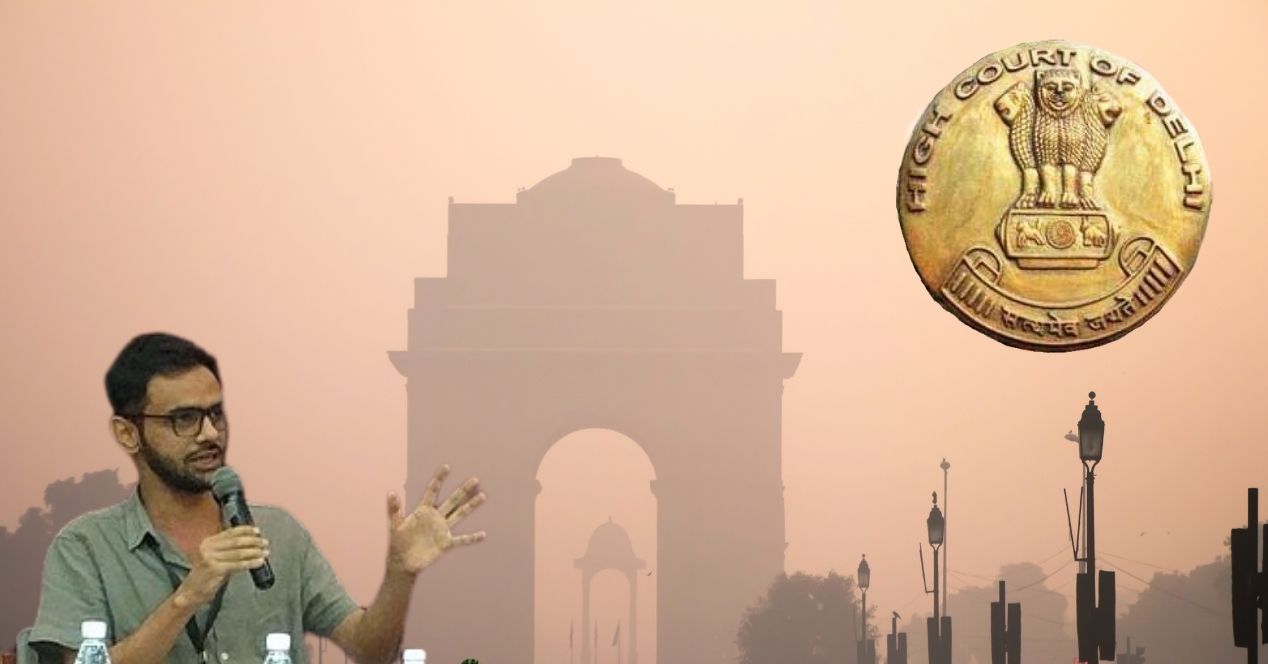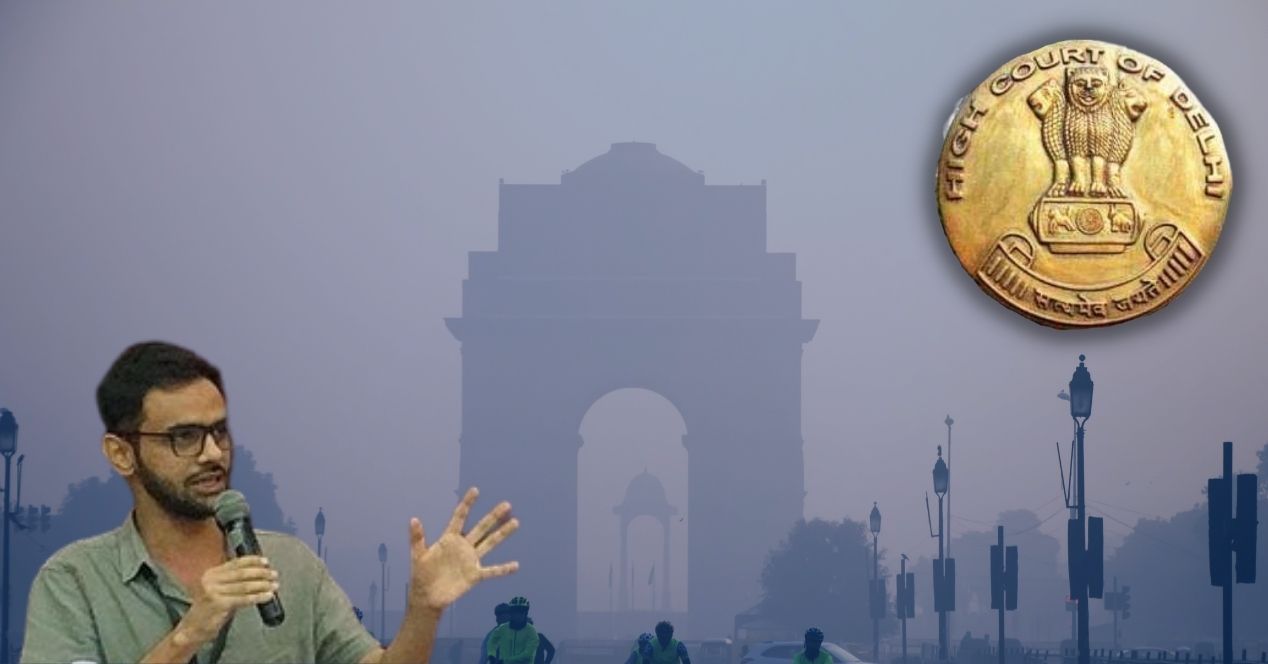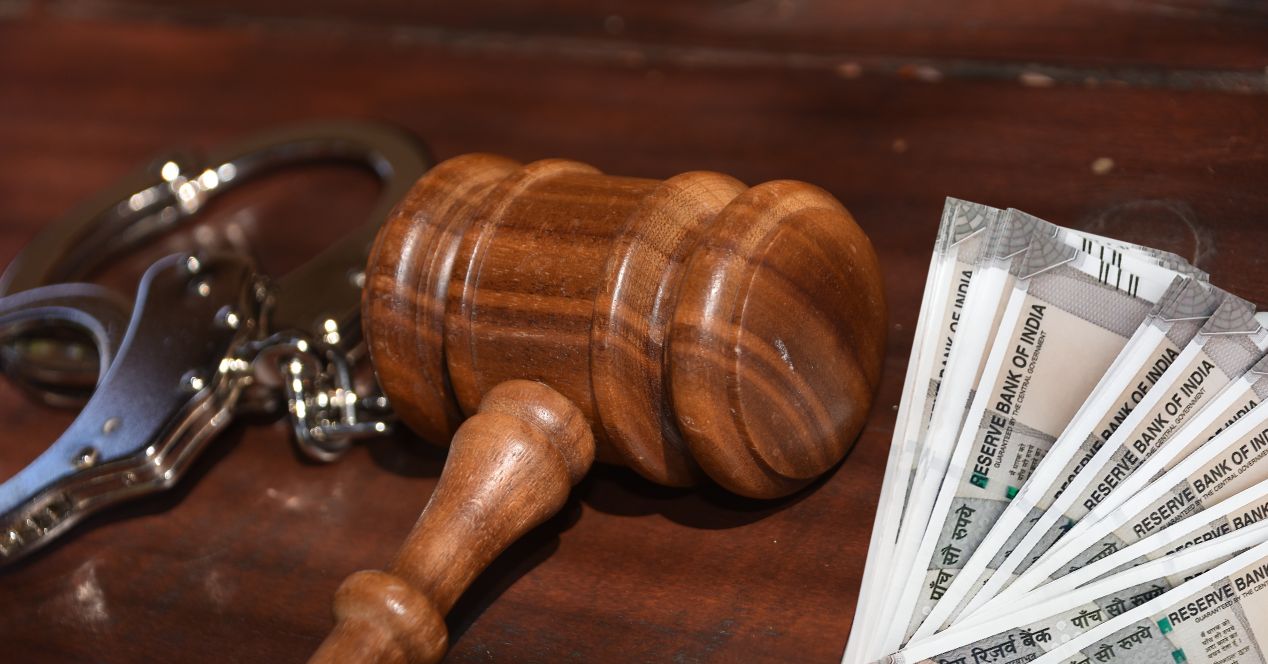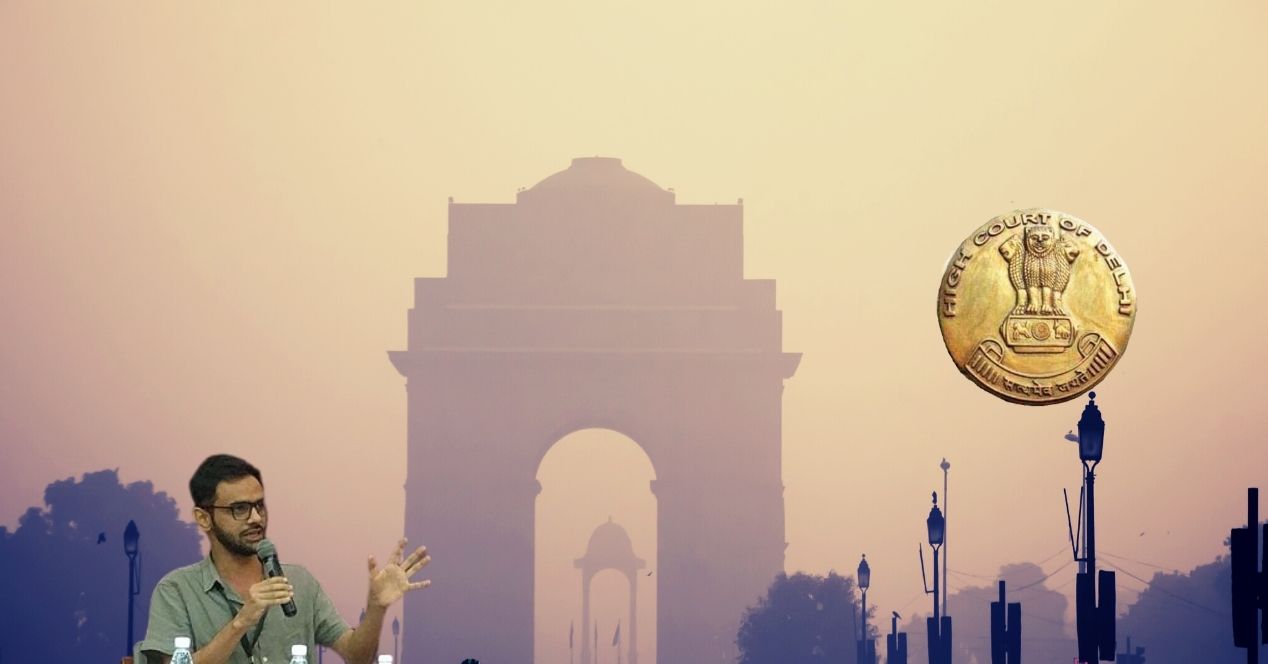Analysis
Delhi High Court Denies Umar Khalid Bail
Justices Bhatnagar and Mridul said that the NIA's evidence established a prima facie case against Mr. Khalid.
Justices Rajnish Bhatnagar and Siddharth Mridul of the Delhi High Court upheld the Karkardooma District Court’s decision denying bail to student activist Umar Khalid on October 18th, 2022. Mr. Khalid, accused under the Unlawful Atrocities (Prevention) Act 2008 and in the Tihar Jail since September 2020, will continue to remain in custody unless and until the Supreme Court overturns the High Court decision.
What is Khalid accused of?
Riots and looting broke out in Northeast Delhi in 2020, at the height of the anti-CAA protests. As per the High Court’s Judgment today, 53 people (including one police official) were killed during the riots, along with damage of public property to the tune of several crores. The Judges noted that the protests caused ‘a sense of fear and panic…in the mind of the general public…the scars still remain in the mind of the public at large.’
Mr. Khalid, along with Sharjeel Imam and many other student activists, was accused of participating in a conspiracy to escalate the protests into armed and dangerous riots. According to Justice Bhatnagar, who authored the Judgment, ‘ The (anti-CAA) protest… was not a typical protest normal in political culture or democracy but one far more destructive and injurious…’. He considered Khalid’s involvement in the protests to be ‘terrorism’—an act to ‘disturb the even tempo to society’ and ‘create a sense of fear’ in a ‘section of society’.
What is the Court’s role in bail applications under the UAPA?
The UAPA is a special criminal legislation that creates a special procedure to investigate serious crimes like terrorism. Notably, the UAPA reverses the traditional burden of proof in criminal investigations. In UAPA cases, the Court must assume that the evidence and allegations against an accused are true.
Section 43(d) governs bail under the UAPA. The provision makes bail hard to secure, as it requires a Court to deny bail if there are reasonable grounds to believe that the case against the accused was prima facie, or at face value, true. As a result, in Khalid’s case The Court was required to assess guilt only by looking at the charge sheet prepared by the National Investigation Agency (NIA). The accused cannot provide any evidence outside the chargesheet in their defence.
The Supreme Court set out a Court’s role in assessing ‘prima facie’ guilt in Zahoor Ahmed Shah Watali (2019). Justice Bhatnagar, in his Judgment today, reads the Watali decision to mean that ‘the Court at the stage of bail can only look at material and evidence as stated in charge-sheet (by the Investigating Authority) without testing its veracity.’ Effectively, this means that any detailed arguments from an accused person about the discrepancies in the evidence against them cannot be considered during a bail hearing. This understanding of the Watali Judgment led to the Delhi High Court rejecting Khalid’s bail plea.
Sr. Adv. Pais: Evidence Against Khalid is Inconsistent and Unsubstantiated
A Court need not be definitively convinced that Khalid is guilty to deny him bail under UAPA. It is only necessary that the presumption of prima facie guilt still holds after considering Khalid’s lawyers arguments.
Senior Advocate Trideep Pais, appearing for Khalid, took the Court through the UAPA’s evidence against him in detail during the hearings. He argued that the Delhi Police’s chargesheet against Umar Khalid misrepresented and fabricated the facts of the case. Through four hearings he recounted 17 instances where the chargesheet made unsubstantiated accusations against Mr. Khalid. Most of the allegations he argued, were simply accepted by the Karkardooma Sessions Court Judge who should have also considered the likelihood of the statements being true.
Mr. Pais pointed out that even if the evidence is considered at face value (prima facie), Watali also states that the Court must be convinced that the evidence is ‘good and sufficient on its face’ to establish the stated offence. The evidence against Khalid, full of discrepancies and unsubstantiated facts, was not ‘good and sufficient’.
HC: Whatsapp Group Membership and Amravati Speech Show Intention To Conspire For Riots
Justice Bhatnagar’s Judgment, just like the District Court’s, found that a Judge cannot conduct a ‘mini-trial’ during bail proceedings—accordingly, he did not base his decision on Mr. Pais’ argument that the witness statements against Khalid were unreliable. Justice Bhatnagar stated that the truth of witness statements can only be tested much later, during the cross-examination stage of hearings.
Justice Bhatnagar stated that a comprehensive view of all evidence against Khalid supported the presumption of prima facie guilt. Justice Bhatnagar also emphasised that the gravity of the alleged offence must be balanced against the evidence challenged. He pointed out that preparing for an offence and actually committing it are equally punishable under the UAPA. Khalid’s membership of several Whatsapp groups with other alleged ‘co-conspirators’ amounted to such preparation.
The Court also addressed Khalid’s speech at Amravati using the words protest and revolution. Justice Bhatnagar pointed out that protest is not always non-violent, alluding to the fact that Khalid’s speeches could be responsible for instigating bloody revolution in the country.
Khalid is likely to appeal the High Court’s decision at the Supreme Court, once again hoping for bail. Until then, he must remain in Tihar.




